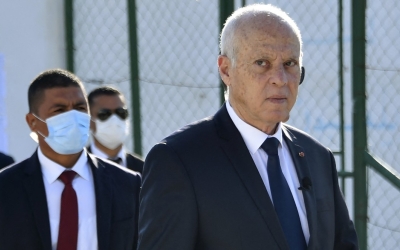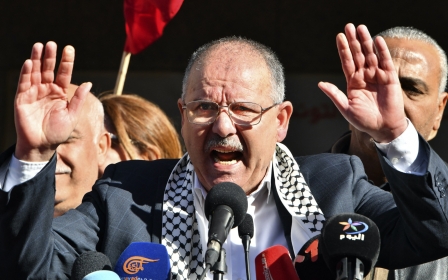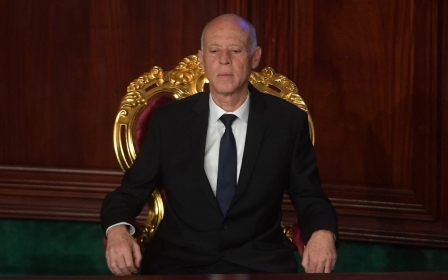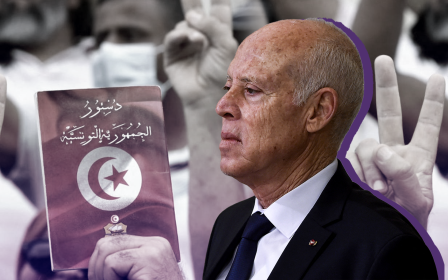Tunisia: Thousands call for president's removal on revolution anniversary
Thousands of Tunisians joined a protest calling on President Kais Saied to step down on Saturday as they marked the 12th anniversary of the ousting of former autocrat Zine El Abidine Ben Ali.
Protesters defied police instructions, removed barricades and marched towards the central Habib Bourguiba Avenue in the capital Tunis, the traditional site of rallies, waving Tunisian flags and chanting "the people demand the fall of the regime".
"Tunisia is going through the most dangerous time in its history. Saied took control of all authority and struck at democracy. The economy is collapsing. We will not be silent," Said Anouar Ali, a 34-year-old demonstrator, told Reuters.
Al Jazeera reported that security forces pushed protesters back from advancing towards the interior ministry building, which maintained a heavy presence along with water cannons.
"We were in Bourguiba in January 2011 when Saied was not present... today he is closing Bourguiba to us. We will reach it whatever the price," said Chaima Issa, an activist who took part in the 2011 revolution before the crowd pushed through the barriers, according to Reuters.
Tunisia has been engulfed in a deepening economic and political crisis since Saied suspended parliament and unilaterally dissolved the government in July 2021 before ruling by decree and pushing a new constitution that enshrined his one-man rule.
Tunisia held parliamentary elections in December that rights groups and Saied's political opponents widely labelled a sham. Just 11 percent of eligible voters cast ballots in an election marked by widespread apathy, where political parties were banned from participating.
The record low-turnout has cast questions about Saied's continuing grip on power. Tunisia's largest opposition, the Salvation Front, called for protests and sit-ins following the vote, saying the low turnout indicated that Saied had lost legitimacy and should resign.
Opposition grows
Opposition to Saied, which remains largely divided, has grown in recent months due to unpopular economic reforms including spending cuts, the restructuring of public companies and reductions in energy and food subsidies.
The powerful UGTT Union, which was initially reluctant to publicly oppose Saied, has joined criticism of the president, saying that it rejects his autocratic approach and will not remain silent.
Noureddine Taboubi, head of the UGTT union, said he supports the protests on Saturday and that the union was preparing for a "national battle to save Tunisia".
On the eve of the protests, Saied toured Habib Bourguiba Avenue and dismissed calls to celebrate 14 January as the anniversary of the Tunisian revolution, according to radio network Mosaique FM.
Surrounded by security personnel, he told citizens that there was no place in Tunisia for "traitors".
Most Tunisians view 14 January as the anniversary of the revolution, as it is the day in 2011 that Ben Ali fled the country after weeks of nationwide protests.
However, Saied unilaterally changed the official anniversary date and has said he regards 14 January as a moment when the revolution went astray.
Middle East Eye propose une couverture et une analyse indépendantes et incomparables du Moyen-Orient, de l’Afrique du Nord et d’autres régions du monde. Pour en savoir plus sur la reprise de ce contenu et les frais qui s’appliquent, veuillez remplir ce formulaire [en anglais]. Pour en savoir plus sur MEE, cliquez ici [en anglais].





